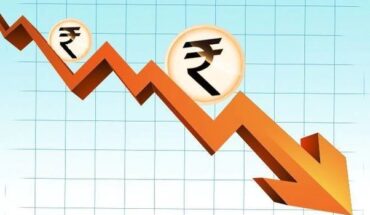As of January 2025, India has witnessed a remarkable rise in the issuance of credit cards, totalling an impressive 10.88 crores, a significant increase from the previous year’s figure of 9.95 crores in January 2024. However, this surge in credit card distribution has been accompanied by a troubling escalation in non-performing assets (NPAs) within the credit sector, which skyrocketed by 28.42%. By December 2024, NPAs had reached a staggering ₹6,742 crores, starkly contrasting to ₹5,250 crores reported in December 2023. Additionally, data reflecting outstanding liabilities indicates a concerning trend, with the percentage of debts overdue between 91 to 180 days climbing to 7.6% by June 2024, compared to 6.5% in June 2023.
Many factors are driving the rising percentage of NPAs associated with credit cards. A critical issue is the insufficient evaluation of creditworthiness among applicants. Issuers facing mounting pressure to broaden their profit margins and expand their business portfolios often overlook essential guidelines about credit limit assessments. Consequently, credit cards are granted to individuals who may lack a stable income or maintain excessive existing debt. Other contributing elements include a slowdown in economic activities, particularly the significant number of job layoffs within the IT sector, exorbitant interest rates levied by credit card companies on missed payments, and consumers frequently neglecting repayment schedules. Additionally, the lure of attractive discounts encourages overspending among cardholders.
The repercussions of high-interest charges and penalties imposed by credit card companies often compel consumers to seek financial relief through personal loans from various mobile loan applications. These apps, known for their swift and user-friendly loan processing, create a seemingly easy avenue for individuals to alleviate their financial burdens. Nonetheless, finding a way out can prove extremely challenging once caught in this debt cycle. Currently, a plethora of loan applications, such as Hero Fincorp, FIB, CreditBee, Incred, IIFL, Finserv, Tata Capital, Moneyview, Navi, MoneyTap, Mpocket, Zest Money, CashE, and PaySense, have gained popularity in the market. Moreover, it is noteworthy that the 36 Chinese loan applications banned in 2020 to safeguard consumer privacy and security have resurfaced, once again ensnaring unsuspecting individuals in their financial traps.
Whether it concerns a personal loan account or a credit card, a customer’s credit score can experience a significant decline following a single default. Such a scenario categorizes these individuals as high-risk borrowers, potentially hindering their access to favourable financial products in the future. However, the silver lining is that it is indeed possible to increase a credit score over time. By consistently making payments on time and avoiding further defaults on credit card or loan accounts, customers can gradually improve their creditworthiness. Generally, banks are inclined to favour borrowers with a CIBIL score exceeding 750, as they often represent a lower risk. Consequently, these fortunate individuals are usually offered loans at more attractive interest rates compared to those categorized as high-risk.
In situations where a credit card account has escalated to the status of a Non-Performing Asset (NPA), the issuing company may present the defaulter with a one-time settlement option. This allows them to settle their outstanding balance, often at a reduced amount. While this settlement does help in clearing the debt, it changes the account status to “settled.” This designation can make banks more hesitant to extend credit to these individuals in the future. For those who foresee needing loans down the line, it is advisable to approach this option with caution.
In some instances, banks, non-banking financial institutions (NBFCs), or fintech companies might still offer alternatives such as gold loans or loans against property to clients with a tarnished credit history. The presence of a financially robust co-applicant or guarantor can also increase the likelihood of loan approval; however, it is important to note that these loans often come with elevated interest rates due to the associated risk.
To mitigate online fraud risks, credit card holders must adopt a proactive and vigilant approach. Here are some crucial precautions to consider:
Only use your card on secure websites. Verify that the website’s URL begins with HTTPS and look for a padlock icon to confirm security.
- Regularly examine your account statements for any unauthorized transactions.
- Enable notifications via SMS or email to stay updated about your financial transactions in real-time.
- Refrain from making online purchases using your card over public Wi-Fi networks, as they can expose you to hacking threats.
- Utilize complex passwords and activate two-factor authentication for an additional layer of protection.
- If you suspect fraud, contact your bank and the cyber police without delay.
- Block the card immediately and inform your issuing bank to prevent unauthorized use.
- Always keep your bank informed about any unusual or unauthorized transactions.
- Do not engage with emails, texts, or calls that request your card details; always verify the legitimacy of the source if you have any doubts.
- When using your card in places like restaurants or theatres, opt for contactless payment options when possible to minimize risk.
- Properly destroy expired or unused cards to ensure that the chip and magnetic strip cannot be accessed.
- Avoid entering your card details on unfamiliar websites or pop-up pages.
- Never disclose your card number, CVV, PIN, or OTP to anyone, regardless of the circumstances.
To combat the rising tide of online fraud, banks have made a proposal to the government and the Reserve Bank of India for the creation of a national calling number within the 1600 series. This service aims to help customers verify whether calls from banks and credit card companies are genuine or fraudulent. Such an initiative is expected to greatly enhance customer experiences, decrease the prevalence of digital fraud, and mitigate the risks associated with scammers impersonating customer service representatives or bank officials.
In summary, to safeguard against potential financial pitfalls, credit card holders should endeavour to familiarize themselves with the intricacies of the card repayment cycle and remain cautious about loan applications that seem too good to be true. It is essential to recognize that financial difficulties often stem from greed and the temptation of attractive discounts, so customers should strive to maintain fiscal discipline and avoid overspending beyond their means.
Satish Singh is Ahmedabad based a Senior Columnist, views are personal






